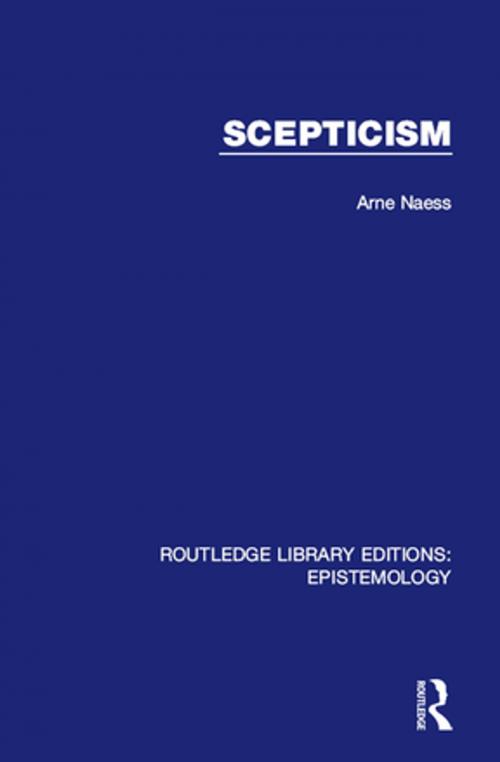| Author: | Arne Naess | ISBN: | 9781317440284 |
| Publisher: | Taylor and Francis | Publication: | June 5, 2015 |
| Imprint: | Routledge | Language: | English |
| Author: | Arne Naess |
| ISBN: | 9781317440284 |
| Publisher: | Taylor and Francis |
| Publication: | June 5, 2015 |
| Imprint: | Routledge |
| Language: | English |
Originally published in 1968. Scepticism is generally regarded as a position which, if correct, would be disastrous for our everyday and scientific beliefs. According to this view, a sceptical argument is one that leads to the intuitively false conclusion that we cannot know anything. But there is another, much neglected and more radical form of scepticism, Pyrrhonism, which neither denies nor accepts the possibility of knowledge and is to be regarded not as a philosophical position so much as the expression of a philosophical way of life. Professor Naess argues that, given a sympathetic interpretation, Sextus Empiricus’s outline of Pyrrhonian scepticism provides the essentials of a genuine and rational sceptical point of view. He begins with a brief account of Pyrrhonism, then goes on to argue for the psychological possibility of this kind of scepticism, defending it against common objections, and examining some of its implications. The last two chapters provide detailed support for the rationality of Pyrrhonism, drawing mainly on certain methodological distinctions in semantics which both justify the Pyrrhonist’s failure to make assertions and restrict the scope of recent epistemological arguments against scepticism in such a way as to modify severely the conclusions based on them.
Originally published in 1968. Scepticism is generally regarded as a position which, if correct, would be disastrous for our everyday and scientific beliefs. According to this view, a sceptical argument is one that leads to the intuitively false conclusion that we cannot know anything. But there is another, much neglected and more radical form of scepticism, Pyrrhonism, which neither denies nor accepts the possibility of knowledge and is to be regarded not as a philosophical position so much as the expression of a philosophical way of life. Professor Naess argues that, given a sympathetic interpretation, Sextus Empiricus’s outline of Pyrrhonian scepticism provides the essentials of a genuine and rational sceptical point of view. He begins with a brief account of Pyrrhonism, then goes on to argue for the psychological possibility of this kind of scepticism, defending it against common objections, and examining some of its implications. The last two chapters provide detailed support for the rationality of Pyrrhonism, drawing mainly on certain methodological distinctions in semantics which both justify the Pyrrhonist’s failure to make assertions and restrict the scope of recent epistemological arguments against scepticism in such a way as to modify severely the conclusions based on them.















